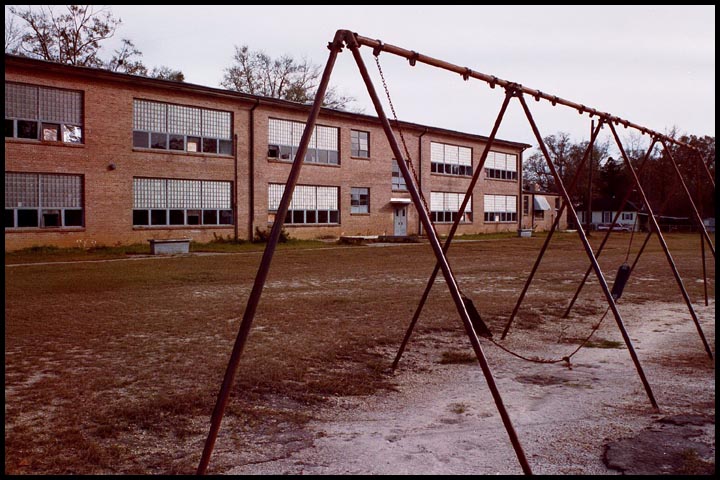The Case for Building Schools
Investing in new education programs or hiring more teachers are worthy goals, but school construction is better suited for the stimulus package.
Jul 31, 2020864 Shares432.1K Views
A public school in Bogalusa, La. (Flickr: Ken Roberts Photography)
As Congress debates a roughly $825 billion economic stimulus package, many interest groups want to make sure their pet programs get a piece of the action. The education community is no exception.
Various advocates are urging Congress to use the stimulus to fund universal pre-k, expanded after-school programs, education technology, and new teacher compensation packages, among other education initiatives.
Illustration by: Matt Mahurin
Many of these are worthy proposals. And there’s good reason to include education in the stimulus. With state budgets deep in the red and local property taxes, another key source of education funding, plunging with property values, schools across the country are facing serious financial deficits. By plugging holes in state budgets, stimulus spending could reduce the pressure for painful education funding cuts.
Unfortunately, many of the education-related proposals are fundamentally mismatched to the goals of economic stimulus. Stimulus spending is a temporary measure to increase demand by quickly injecting federal dollars into the economy. To the contrary, effective education reforms require sustained, stable investments; schools are unlikely to make meaningful changes if they know funding is temporary. Implementing new education programs effectively takes time, compromising the effect of an economic stimulus.
There is, however, one big exception. New investments in school construction and modernization are a natural fit for the stimulus package. Unlike education programs, which need ongoing funding in order to keep operating, a two-year investment in school construction would produce thousands of school buildings that could be used for decades to come, with no need for continued federal funding. Similarly, investments in “greening” existing school facilities to reduce their energy consumption will produce substantial, ongoing savings that school districts can use to fund pre-k, increased teacher compensation, and other educational programs.
Many states and school districts have construction projects that were already in the works but have been put on hold due to the economic downturn. Federal school construction aid would allow work to resume on those projects, moving cash into the economy quickly. School construction would also create new jobs for construction workers hard-hit by the housing downturn. Because the construction sector is slow right now, schools and districts are likely to secure better deals on projects now than they would if they waited until the economy picks up.
But perhaps the most important reason to invest in school construction is that our students need it. Just as Americans have underinvested in our bridges, roads, and other infrastructure, we’ve also underinvested in our education infrastructure. The American Society of Civil Engineers Infrastructure report card gives our school buildings a grade of D — lower than grades for bridges, rail, or public transit infrastructure. According to the National Center for Education Statistics, it would cost $127 billion just to renovate and repair crumbling or outdated school facilities to good condition. Poor school facilities don’t necessarily prevent students from learning, but, it’s unconscionable that we currently ask students to learn, and teachers to work, in buildings that are overcrowded, inadequately heated and ventilated, poorly maintained, and in some cases literally falling apart. The contrast between schools and other buildings sends our most disadvantaged children a devastating message about the value we place on their education.
States and local governments bear primary responsibility for building and maintaining school facilities but high-poverty and rural communities lack the tax base to support these types of investments. The credit crunch and economic downturn have made things even harder.
By investing in school construction as part of the stimulus, the federal government can put tens of thousands of construction workers back to work, reduce energy consumption in our schools at great savings to local school districts, and improve the quality of educational facilities for a generation of children. That’s a pretty good deal, and one Congress and the president should take advantage of.
*Sara Mead is a senior research fellow at the New America Foundation. She writes about early education policy for the blog Early Ed Watch. *

Hajra Shannon
Reviewer
Latest Articles
Popular Articles

